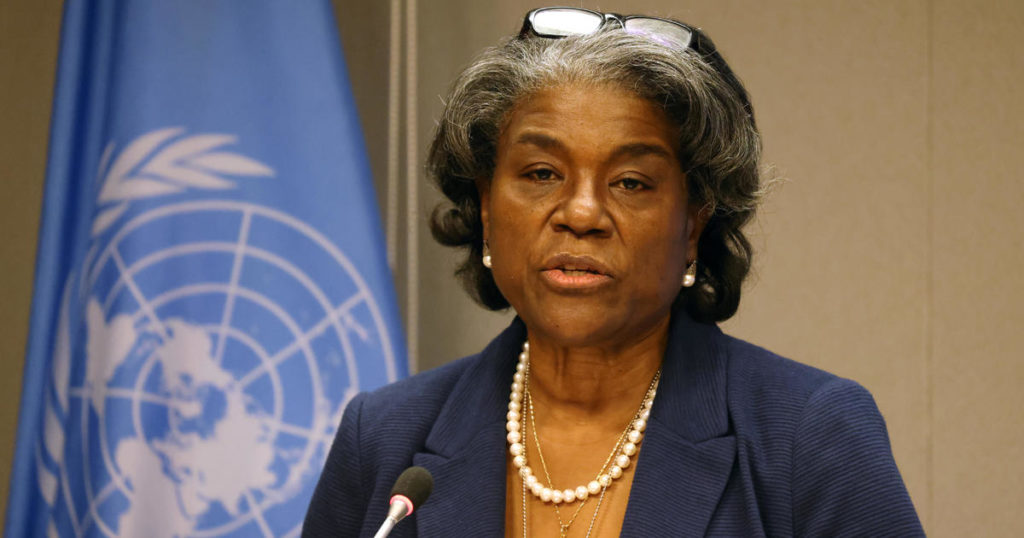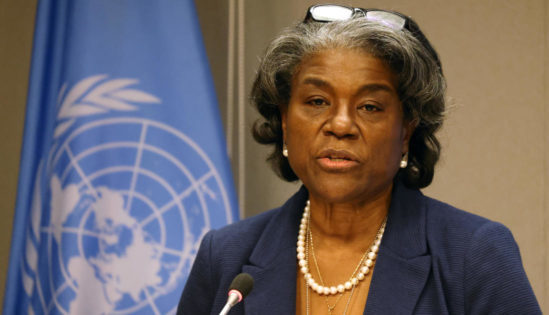
The United States has stressed that assistance it has pledged for the Syrian crisis is not aimed for reconstruction.
It noted that the Syrian regime will have no access to the humanitarian aid, which will be distributed on camps and refugees in neighboring countries as well.
In a telephone briefing on Tuesday, Acting Principal Deputy Assistant Secretary Bureau of Population, Refugees and Migration Richard Albright said the US will “not provide any reconstruction assistance absent progress on the political track.”
“There is no military solution that will bring peace, security, and stability to Syria and the region.”
Asharq Al-Awsat asked Albright about the means of maintaining the delivery of the assistance to the people under regime controlled areas or regions where Russia is present and whether the US will contact the regime or have any kind of cooperation to deliver the aid.
The UN agencies and the NGOs in Syria operate according to a humanitarian response plan and independently, he responded.
“None of our assistance that we provide goes to the Syrian government. It all flows through UN agencies and NGOs and it goes to the people of Syria.”
“We watch very closely the issues of access inside of Syria, and we do not allow the Syrian regime, the UN doesn’t allow them, to seize assistance or control where it goes,” he added.
“But we do sometimes encourage – encounter difficulty in access, and sometimes the regime does not allow agencies to operate where they feel they need to operate. So that is a challenge that we continue to deal with inside of Syria,” Albright concluded.
He pointed out that US assistance targets more than 12 million Syrians who’ve been forced out of their homes, fleeing the horrific effects of the Assad regime’s destructive campaign.
It supports a wide range of humanitarian programs for people affected by the crisis and the communities that host them, such as food, shelter, healthcare, education, and livelihoods.
The US assistance also provides protection and assistance for refugees to support them to become self-reliant and to provide services like counseling and other protection programs for the most highly at-risk groups, including children, women, persons with disabilities, and the elderly, he stated.
“The United States will continue to be a leader in the humanitarian response and to advocate for unhindered humanitarian access to Syrians regardless of where they live.”
Renewing and expanding the UN’s authorization for cross-border access to deliver humanitarian aid is essential, he affirmed.
Speaking at the fifth Brussels Conference on “Supporting the Future of Syria and the Region” on Tuesday, US Ambassador to the United Nations Linda Thomas-Greenfield announced more than $596 million in new humanitarian assistance to respond to the Syrian crisis.
This funding brings the total US government humanitarian assistance to nearly $13 billion since the start of the decade-long crisis, including nearly $141 million in support of the COVID-19 pandemic response in Syria and the region.
The US assistance will benefit many of the estimated 13.4 million Syrians inside Syria in need of humanitarian aid, as well as 5.6 million Syrian refugees in Turkey, Lebanon, Jordan, Iraq, and Egypt, according to US Secretary of State Antony Blinken.
He urged other donors to support the Syrian people by increasing their contributions to these efforts.
“The Syrian people have faced innumerable atrocities, including Assad regime and Russian airstrikes, forced disappearances, ISIS brutality and chemical weapons attacks,” Blinken said in a statement.
“Furthermore, systemic corruption and economic mismanagement at the hands of the Assad regime have exacerbated the dire humanitarian crisis, which has been further compounded by the challenge of COVID-19.”
Asharq Al-Awsat


Leave a Reply
You must be logged in to post a comment.